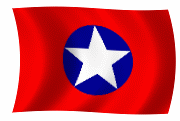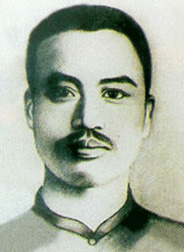 Phỏng vấn Tư Lệnh Hạm Đội 7 Thái Bình Dương
Phỏng vấn Tư Lệnh Hạm Đội 7 Thái Bình Dương
Toan văn anh ngữ buổi họp báo của Đô Đốc Timothy J. Keating Tư Lệnh Thái Bình Dương viếng thăm Hà Nội ngày 13/12/2007 với báo chí thế giới.
Admiral Timothy J. Keating, U.S. Navy
Commander, U.S. Pacific Command
Press Conference
Hanoi, Vietnam
December 13, 2007
Admiral Keating: Sorry to be late. We were at the Ministry of Foreign Affairs with the Vice Minister. He extends, indirectly, his apologies.
My name is Tim Keating. I’m an Admiral in the United States Navy and I have the privilege of commanding the United States Pacific Command. This is my first visit to Vietnam as the Pacific Command Commander. It is a visit to which I have been looking forward for months and months. So it’s really a pleasure to be here.
We have over 40 countries in our area of responsibility and we have been watching all of them closely and we’re particularly conscious of the progress Vietnam has made as evidenced by the growing economy and by Vietnam’s membership at the table in the United Nations.
Our discussions at the Ministry of Defense and the Ministry of Foreign Affairs today included topics such as cooperation on humanitarian assistance operations, an agreement to exchange military students at our war colleges, and potential opportunities for scientific education, including medical exchanges.
We expressed our gratitude to leaders in defense and foreign affairs for the spirit of cooperation demonstrated during our recent Bangladesh relief operations. We concluded all of our meetings with a mutual commitment to doing all that we can at the United States Pacific Command in close collaboration with the government of Vietnam to improve peace and stability throughout the Asia Pacific region.
I’d be happy to take your questions.
Question: Frank Zeller from AFP.
Admiral Keating: Hello, Frank.
Question: As you might know, the Spratlys Islands and Paracels Islands issue has become heated again recently between Vietnam and China. There was a protest here last Sunday. Does the United States have a position on that?
Admiral Keating: The United States Pacific Command has a position there, Frank, that one of the absolute fundamental concepts to which we are committed is the freedom of navigation on the high seas. Now I know there are folks who stake claims to certain parts of the Pacific — the East China Sea, the Indian Ocean, you name it. But we are resolutely committed to maintaining freedom of navigation on the high seas at the United States Pacific Command. So that the individual differences of interpretation between let’s say Vietnam and the People’s Republic of China, we would of course allow those two countries to work out their differences. But our position at United States Pacific Command is clear. Freedom of the high seas is an integral element of our economic development and our military operational capabilities and we support freedom of navigation on the high seas.
Question: Ben Stocking, AP.
Admiral Keating: Hi, Ben.
Question: It’s nice to see you. In the last year or two there have been quite a procession of visits from people in the U.S. military to Vietnam and I guess I’m just wondering if these are just absolutely routine business as usual visits of the sort you make to all countries in the region, or is it some kind of indication that at this particular time in this particular place there’s a heightened interest in getting closer, so to speak?
Admiral Keating: I don’t think it’s entirely coincidence that there has been this steady stream of visits, because you’re right. Our President, the Secretary of Defense, other senior military officials, and now yours truly. The progress Vietnam is realizing in terms of human rights, in terms of economic growth, in terms of increased responsibility and authority on the international stage. Those improvements are not lost on us. So we want to emphasize to Vietnam the importance of our relationship, we want to enhance the trust that we share between each other, and we want to thank Vietnam for the support and the cooperation they’re giving us in areas perhaps foremost — sustained electrical power. [Laughter]. Foremost the search for those American servicemen who lost their lives in Vietnam. The support and cooperation we get from the authorities is of the very highest order and we’re very grateful for that. We want to take every opportunity we can to express our gratitude, and to express our commitment to providing whatever information we may have as to the many Vietnamese missing in action as well.
Question: Matt Steinglass, Voice of America.
Admiral Keating: Hi, Matt.
Question: Hi. Over the Thanksgiving break a U.S. aircraft carrier was refused entry at the Port of Hong Kong. I wonder if that gives the Navy any increased impetus to seek more ports in the area where its ships can dock and whether we might see U.S. aircraft carriers docking in Vietnam, or whether that’s even possible.
Admiral Keating: The refusal of the Chinese government to give access to the USS Kitty Hawk was a cause of concern to us at the Pacific Command. We voiced that concern. Our reasons are several. We think that the behavior of nations who seek a harmonious relationship and peaceful rise should include approval of visits of ports of call. We have already seen that demonstrated by approval from Vietnam for United StatesHong Kong to be with their family members for the American Thanksgiving holiday. naval ship visits and research ship visits here within the past year. Additionally, it was a matter of not minor concern to us that many hundreds of dependents from sailors on the Kitty Hawk and the air wing had already flown to be with their family members for the American Thanksgiving holiday.
So it was an unfortunate incident, at least. We have had discussions at high levels with Chinese officials and we have expressed our concern to them.
As to visits by United States naval ships, including aircraft carriers, it’s an ongoing discussion, topic, and it came up several times today. Not specifically aircraft carriers, but all naval ships including hospital ships, and we received assurances from the leaders of Vietnam that all of those ships would be given favorable consideration. So I’m optimistic about port visits in Vietnam.
Question: To follow up, are those ship visits visits that are necessary for logistical reasons for the Navy, is it more in the nature of rest and [inaudible]?
Admiral Keating: The shortest answer is yes. There are always fresh fruits and vegetables, provisions, that are on-loaded when our Navy ships come into port. Sailors don’t mind liberty in any port. And increasingly the men and women of the armed services of the United States have participated in humanitarian assistance projects, and the port visits such as we have in Danang and other Vietnamese ports afford our sailors that opportunity to get to understand the culture and get to know the Vietnamese people better. And I guarantee you, the sailors are very excited about that prospect.
Question: I’m from NHK TV. Recently there is a group of defense industry companies visiting Vietnam. Do they come here to try to sell U.S. arms, U.S. weapons? And also during your visit did you discuss with the Vietnamese officials the opportunity to sell U.S. weapons to Vietnam?
Admiral Keating: Let me take them in reverse order, if I can. I did not discuss sale or purchase of U.S. or any other weapons with the officials I met today.
As to your first question, I am unaware of any visits by U.S. or other national weapon salesmen to Vietnam. At U.S. Pacific Command we would have no position on that one way or the other.
Question: Nguyen Dai Phuong from Tien Phong Daily, Vietnam. Recently you said in your presentation first that the two sides today discussed about training, personal training. So can you please specify the number of training for a year and the term of the training in the United States and the field of it? Thank you.
Admiral Keating: We did not concentrate on numbers. We concentrated on types of training. There are, I believe, two Vietnamese officers in Texas now; six Vietnamese officers in Texas now studying English. We have agreed to provide a language training team to Vietnam so that we can have even more of those who would like to learn to speak English, to avail them of that opportunity. And the types of training we discussed include attendance at, for example, war colleges, Army, Navy, Air Force, Marine Corps war colleges at the intermediate or senior level, or the counterpart to the National Defense Academy in the United States, the National War College. These are discussions right now. The letters of agreement have not been signed, but we both agreed to take it as a matter for serious consideration in the short term. What we don’t want that to do is be perceived as yeah, we’ll get around to it a long time from now. This is an active matter and we in the U.S. Pacific Command are going to engage in conversations with our superiors in Washington to try and make this happen soon.
Our Vietnamese colleagues also raised the possibility of some medical training, and we would certainly favor that at U.S. Pacific Command. I would emphasize, we also are interested in having U.S. military officials attend the similar schools in Vietnam, and we were given every assurance that that would likely happen soon for our students to enroll in Vietnamese War College, and that’s an exciting prospect for us.
Question: As you know, Vietnam is going to take its seat at the UN Security Council. Will the U.S. help Vietnam in efforts to maintain peace in the world? And how will it help?
Admiral Keating: Of course. That is our overarching mission at the United States Pacific Command, to ensure peace and stability throughout our region and Vietnam’s seat as an important, very important position with the United Nations only reinforces our desire to enhance the spirit of cooperation and collaboration we have with Vietnam and all countries in the Asia Pacific region, once again, to enhance the stability and prosperity throughout the entire region.
Thank you all very much. It’s been nice talking to you.

